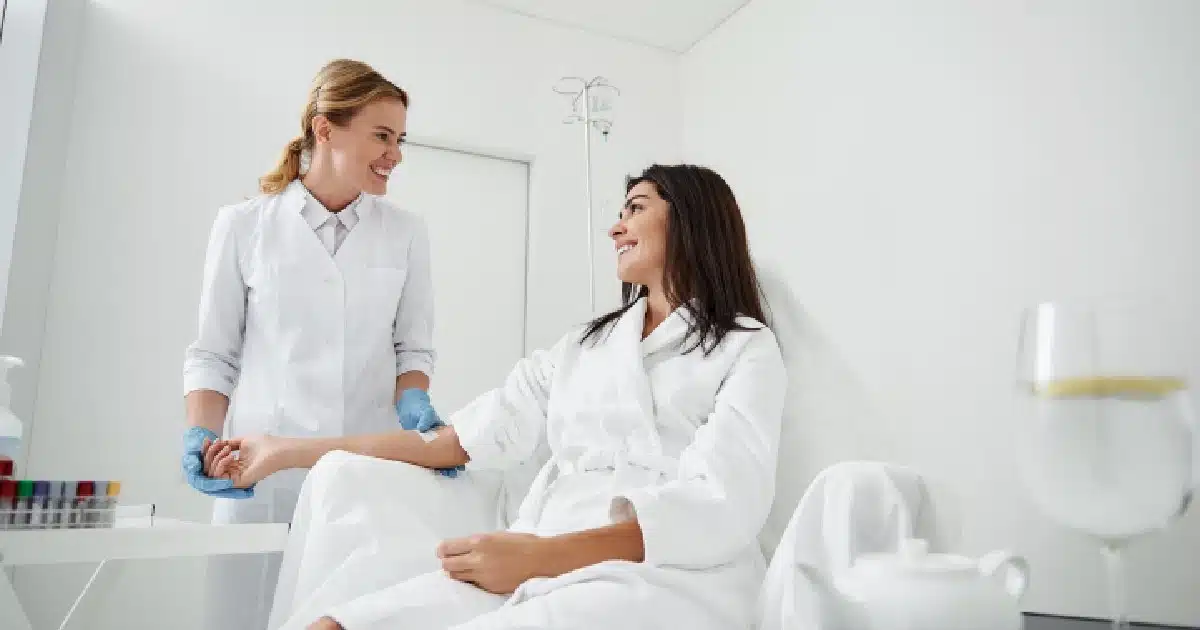Intimate Health refers to the overall health and well-being of our sexual organs and the functions and sensations accompanying them. It encompasses many physical and emotional factors, including hygiene, sexual activity, and menstrual and reproductive health. This article will discuss everything you need about intimate health, including hygiene, common intimate health issues, and maintaining good health.
Hygiene
Good intimate hygiene is essential for maintaining personal health. The vagina is a self-cleaning organ that requires primary care to prevent infection and odor. Here are some tips for maintaining good personal hygiene:
- Wash your vulva regularly: It is essential to wash your vulva regularly with warm water and mild soap. Avoid using scented products or douches, as they can upset the natural pH balance of the vagina and lead to infection.
- Wipe front to back: Always wipe from front to back after using the toilet to prevent the spread of bacteria from the anus to the vagina.
- Wear clean underwear: Change your underwear daily and choose cotton underwear that is breathable and comfortable.
- Avoid tight clothing: Wearing a tight dress, especially underwear, can increase the risk of infection and irritation.
Common Intimate Health Issues
While good intimate hygiene can go a long way in preventing personal health issues, it is still essential to be aware of common problems that can arise. Here are some of the most common intimate health issues and how to treat them:
- Yeast infections: Yeast infections are caused by an overgrowth of the fungus Candida. Symptoms include itching, burning, and a thick, white discharge. Treatment typically involves over-the-counter antifungal creams or prescription medications.
- Urinary tract infections (UTIs): UTIs are caused by bacteria that enter the urinary tract, leading to painful urination, frequent urges to urinate, and a feeling of incomplete bladder emptying. Treatment typically involves antibiotics.
- Bacterial vaginosis (BV): BV is caused by an imbalance of bacteria in the vagina. Symptoms include a strong, fishy odor and a thin, grayish-white discharge. Treatment typically involves antibiotics.
- Sexually transmitted infections (STIs): STIs can be caused by bacteria, viruses, or parasites and can be spread through sexual contact. Common STIs include chlamydia, gonorrhea, and genital herpes. Treatment varies depending on the type of infection and may include antibiotics, antiviral medications, or other medications.
Maintaining Good Intimate Health
In addition to good hygiene practices and being aware of common intimate health issues, there are other steps you can take to maintain good personal health. Here are a few tips:
- Practice safe sex: Using condoms and other methods can help prevent the spread of STIs.
- Get regular check-ups: Regular gynecological exams can help detect and prevent problems before they become more serious.
- Stay hydrated: Drinking plenty of water or fluids can help flush out bacteria and other harmful substances from the body.
- Eat a balanced diet: Eating a balanced diet rich in fruits, vegetables, whole grains, and lean protein can help support overall Health, including intimate Health.
- Manage stress: Stress can harm personal health, so it is essential to find healthy ways to manage stress, such as meditation, exercise, or therapy.
Menstrual Health
Menstrual Health refers to the health and well-being of the female reproductive system during the menstrual cycle. Here are some tips for maintaining good menstrual health:
- Use the right products: There are many menstrual products available, including pads, tampons, and menstrual cups. Choose the best product and change it frequently to prevent infection and odor.
- Track your cycle: Keeping track of your menstrual cycle can help you identify any irregularities or changes that may require medical attention.
- Maintain good hygiene: It is essential to change your menstrual product frequently and to wash your genital area with warm water and mild soap.
- Manage menstrual cramps: Over-the-counter pain medications or other remedies, such as heating pads or gentle exercise, can manage menstrual cramps.
Reproductive Health
Reproductive health refers to the health and well-being of the reproductive system, including the ability to conceive and carry a pregnancy to term. Here are some tips for maintaining good reproductive health:
- Use birth control: Birth control can help prevent unintended pregnancy and reduce the risk of sexually transmitted infections.
- Plan for pregnancy: If you are planning to become pregnant, it is essential to talk to your healthcare provider about preconception care and to make any necessary lifestyle changes, such as quitting smoking or reducing alcohol intake.
- Get regular check-ups: Regular gynecological exams and fertility testing can help identify any issues that may impact reproductive health and improve the chances of a successful pregnancy.
- Maintain a healthy weight: Being overweight or underweight can impact reproductive Health, so it is essential to maintain a healthy weight through a balanced diet and regular exercise.
Understanding Intimate Health Treatments
Treatment for intimate health issues may require a combination of gynecology and dermatology. For example, certain skin conditions, such as psoriasis or eczema, can impact the skin around the vulva and require treatment from a dermatologist. Similarly, some gynecological issues, such as vulvodynia, may require input from both a gynecologist and a dermatologist.
Vulvodynia is characterized by chronic vulvar pain, burning, or discomfort. It is estimated to affect up to 15% of women and can be challenging to diagnose and treat. While the exact cause of vulvodynia is unknown, it is believed to involve a combination of factors, including nerve damage, hormonal changes, and muscle spasms.
Treatment for vulvodynia may involve a combination of gynecological and dermatological approaches. A gynecologist may prescribe medications, such as topical creams or oral medications, to manage pain and inflammation. They may also recommend physical therapy or relaxation techniques to address muscle tension and stress.
A dermatologist may provide additional treatment options, such as topical medications or phototherapy, to address any underlying skin conditions contributing to vulvar discomfort. They may also recommend lifestyle changes, such as avoiding certain fabrics or personal care products, to reduce irritation and inflammation.
Sometimes, a multidisciplinary team may be necessary to address the complex and interrelated factors contributing to intimate health issues. It may include input from a gynecologist, dermatologist, pelvic floor therapist, and mental Health professional.
It is essential to seek treatment from a healthcare provider with experience and expertise in treating intimate health issues. They can work with you to develop a personalized treatment plan that addresses your needs and concerns and helps you achieve optimal personal health and well-being.
Conclusion
In conclusion, caring for our intimate health is crucial for our overall well-being. Maintaining good personal health involves practicing good hygiene habits, being aware of common issues, and supporting overall health and well-being, such as tracking our menstrual cycle, using birth control, and getting regular check-ups.
At LOURE Aesthetics, we understand the importance of intimate health and its impact on our quality of life. We offer various services, including gynecology and dermatology, to help women achieve optimal personal health and well-being. Our team of experienced healthcare providers can work with you to address your specific needs and concerns, providing personalized treatment plans that help you feel your best.
Whether you are struggling with a common intimate health issue or seeking to improve your overall health and wellness, LOURE Aesthetics is here to help. Reach out today for more information about our services and how we can support your intimate health journey.







